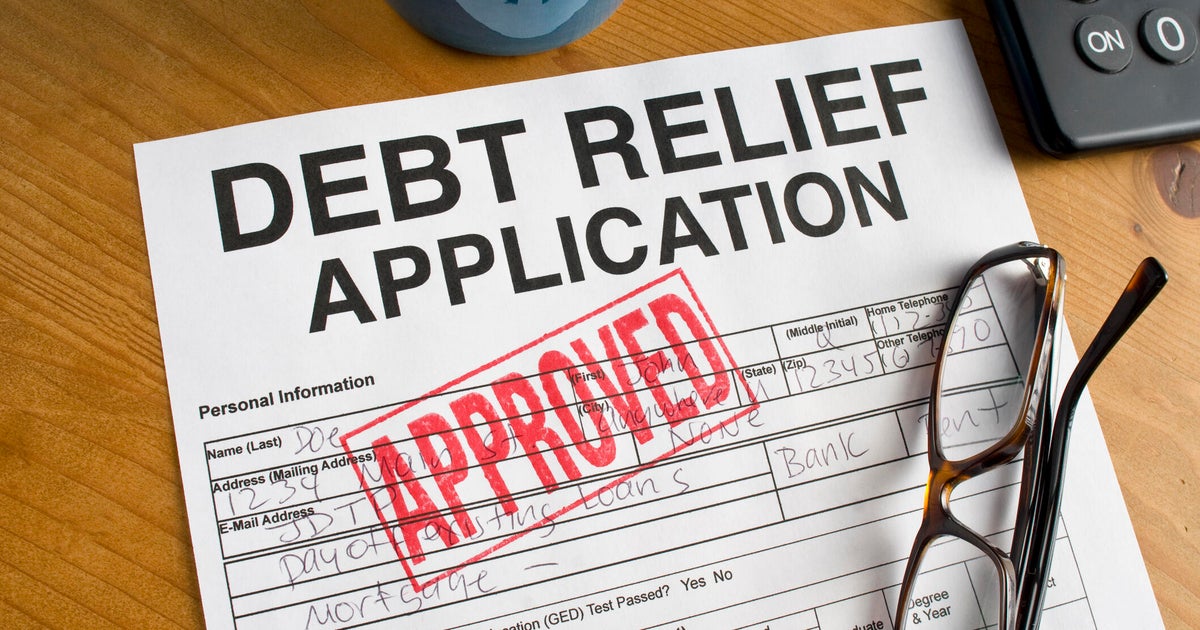Bankruptcy vs. debt settlement: How to choose the right debt relief option
The current economic climate is having a profound impact on many people's finances. Not only are prices rising on necessities like housing, groceries and gas, but interest rates are also high, meaning that borrowing is a lot more expensive right now. It's not just new loans that cost more, either. If you're carrying credit card debt, the variable rates on your cards have gone up recently, meaning that the interest charges are now higher than they once were.
And, if you can't afford to pay off what you owe in full, the credit card interest charges can compound quickly, putting you in a tough financial spot. In these situations, there are debt relief options, like bankruptcy and debt settlement, that can provide a much-needed lifeline, offering you a path to regain control and stabilize your financial footing.
For those drowning in debt, bankruptcy offers a powerful legal solution that can provide immediate relief from creditor harassment and the threat of lawsuits. Debt settlement, on the other hand, offers a negotiation-based approach to debt relief. But while both offer a way to manage and potentially eliminate debt, they have distinct differences in terms of their impact on your credit, as well as the legal implications and the level of relief provided. Below, we'll detail how to decide which option may work best for you.
Compare the debt relief options available to you now.
Bankruptcy vs. debt settlement: How to choose the right debt relief option
Bankruptcy is a legal process that allows you to seek relief from your debts. It involves filing a petition with a bankruptcy court, and the outcome is determined by the type of bankruptcy filed and your financial situation.
In general, there are two types of bankruptcy that are filed for:
- Chapter 7 bankruptcy: This type of bankruptcy involves the liquidation of non-exempt assets to pay off creditors. In exchange, most unsecured debts, such as credit card balances and medical bills, are discharged. However, certain debts, like student loans and alimony, are typically not eligible for discharge.
- Chapter 13 bankruptcy: This type of bankruptcy allows those with a stable income to reorganize their debts and establish a repayment plan over three to five years. After completing the plan, any remaining unsecured debts are discharged.
While bankruptcy offers a fresh start, it comes with significant consequences. The filing remains on your credit report for seven to 10 years, making it difficult to obtain credit or secure favorable interest rates during that period. Bankruptcy can also impact employment opportunities in certain industries and may require the surrender of your non-exempt assets.
On the other hand, debt settlement is a process in which you or a third-party company negotiates with creditors to reduce the total amount you owe. This option typically involves stopping payments to creditors and allowing your accounts to become delinquent, which creates leverage for negotiation.
If you're working with a debt settlement company, the expert you're working with then attempts to negotiate lump-sum settlements with your creditors, often settling for a fraction of the outstanding balance. Once a settlement is reached, you pay the agreed-upon amount, and the remaining debt is forgiven.
While debt settlement can provide significant debt relief, it has its own set of drawbacks. For starters, the process can take several years and may result in creditors initiating legal action or wage garnishment. And, late payments and settlements can negatively impact your credit score, making it difficult to obtain credit or secure favorable interest rates in the future.
Given the complexities and long-term implications of bankruptcy and debt settlement, it can be beneficial to seek professional advice from a qualified attorney or certified credit counselor. These professionals can evaluate your unique financial situation, explain the pros and cons of each option and provide guidance on the best course of action. That said, there are some factors that you may want to consider as part of the process when narrowing down your options.
Learn more about how the right debt relief option could help you today.
What to consider when choosing between bankruptcy and debt settlement
When trying to decide between bankruptcy and debt settlement, it may help to consider the following:
Amount and type of debt
Bankruptcy may be more suitable for those with substantial unsecured debts, such as credit card balances or medical bills. Debt settlement may be a better option for those with a manageable amount of debt and a steady income.
Asset protection
In Chapter 7 bankruptcy, non-exempt assets may be liquidated to pay creditors. Debt settlement allows you to keep your assets but may require paying a portion of the debt you owe.
Credit score impact
Both bankruptcy and debt settlement can negatively impact your credit score, but bankruptcy typically has a more severe and longer-lasting effect.
Legal protection
Bankruptcy provides legal protection from creditors and an automatic stay on collection efforts. Debt settlement does not offer the same legal protections, and creditors may continue collection efforts or initiate legal action.
Time and cost
Bankruptcy typically resolves debt more quickly than debt settlement, which can take several years. However, bankruptcy fees, including attorney fees and court costs, can be substantial, especially compared to the fees that debt relief companies charge — which are typically a percentage of the negotiated debt.
Future financial goals
If you're planning to apply for loans or make significant purchases in the near future, you may find debt settlement more favorable, as it has a shorter credit impact compared to bankruptcy.
The bottom line
Bankruptcy and debt settlement are both viable options to consider if you're facing overwhelming amounts of debt. But ultimately, the decision to pursue bankruptcy or debt settlement should be based on a thorough understanding of the potential consequences and a careful assessment of your financial goals and priorities. While both options offer you a path to debt relief, the right choice can pave the way for a more secure financial future.






